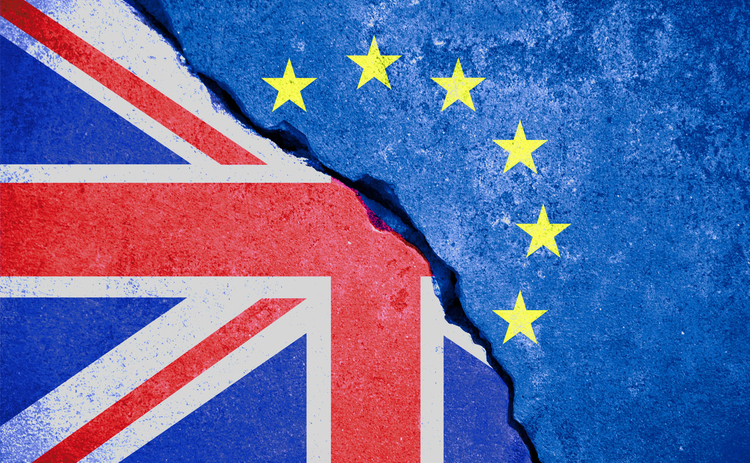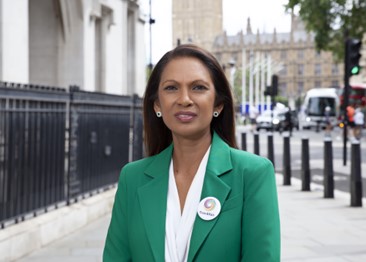
Bremainers Ask… Lord Chris Rennard MBE
Formerly the Chief Executive of the Liberal Democrat Party, Lord Rennard was elevated to the House of Lords in 1999. He was Director of Campaigns and Elections for the Liberal Democrats from 1989 to 2003 and Chief Executive of the Party from 2003 to 2009.
Iain Shirlaw : Considering the rising cost of living, increased border friction, and labour shortages in key sectors, why do the Liberal Democrats oppose rejoining the Single Market and Customs Union?
We don’t, and we are the only major UK party offering a route to achieve this, although I accept that we have had insufficient profile for our view on this. Ed Davey made our position clear in his recent Conference speech when said that “we need to renew ties of trust and friendship to set us on the path back to the Single Market”. I think that we should be bold in saying that most people now agree that Brexit was a mistake, and I think that this can be said without insulting those who voted for it. Re-joining the EU eventually may require things like proportional representation (so that a decision made after a negotiation would be stable), or the Conservatives returning to their pro-EU position of many decades (not likely anytime soon, but eventually possible), and we also need to be seen to take people with us.
Ruth Woodhouse : Has there been any recent progress in building support for a campaign for overseas constituencies for British citizens abroad?
I was responsible for introducing the concept to a Lib Dem Manifesto, based on the models of countries like France, Portugal, and Italy. When I first spoke about it in the Lords, senior Labour figures said that they had never heard of it. But as we explained the arguments, it attracted more interest as it would avoid people who have lived away for decades being expected to vote on issues such as those concerning local hospitals, whilst directly electing representatives who as MPs for such constituencies might prioritise issues like frozen pensions as well as the drawbacks of Brexit (I see no “tangible benefits”, by the way). The excellent Unlock Democracy is now campaigning on the issue, and I am a member of the All-Party Parliamentary Group on Overseas Constituencies and I spoke at one of their recent meetings. If enough UK citizens living overseas manage to register and vote, then I believe that this will eventually happen.
Lisa Burton : How do you feel about the recent ‘stuffing’ of the House of Lords by Conservative PMs which undermines public perception of the House and the excellent work conducted by many peers and committees?
I may be in a minority amongst members of the Lords, but I believe that the main alternative to “stuffing” is elections and that is the policy of the Lib Dems. In debates in the Lords Chamber, I quote Churchill saying that “democracy is the worst possible system of Government, apart from all the other ones that have been tried from time to time”. Many of the Crossbenchers make excellent contributions, but I do not think that someone appointed, for example, because of military experience should be voting on issues like the NHS. Any appointments should be made by a properly independent Appointments Commission, not by Prime Ministers simply seeking to reward loyalty or defections, or to reward major donors.
Steven Wilson : Do you think former supporters of the Lib Dems have finally forgiven the party for the coalition with Cameron?
Mostly. The coalition strategy of the Lib Dems in 2010 failed to learn from the experience of many of our European sister parties, or our experience of coalition government in Scotland, Wales, and Local Government. We needed to show our differences with the Conservatives, and not let it appear publicly that we generally agreed on major issues. Paddy Ashdown asked me to look at how our sister parties in Europe handled coalition when he was contemplating forming one with Tony Blair. I explained how those which handled it successfully often had major public rows with their partners and they used their balance of power position to force changes which everyone knew about. We differed from the Conservatives on many things, but it was a mistake to place the image of unity above the need for distinctiveness. With hindsight 2010 – 2015 was a much happier period than that since then, but as I argued with Paddy Ashdown, coalition is very dangerous for a “third party” unless it involves proportional representation.
Valerie Chaplin : Why are the Lib Dems so reticent about trying to rejoin, getting freedom of movement, Erasmus+ etc back, when so many people have voted for them because they oppose Brexit and want to rejoin the EU?
We appear more reticent than we are, partly because we lack the media exposure that we used to have as the “third party” when I worked with Paddy Ashdown and Charles Kennedy. But he we have also appeared too nervous about offending those who voted “Leave”. I helped the likes of Vince Cable to win back his seat in 2017 after he had lost it in 2015, thanks to the coalition, by helping to make sure that we appealed to Leave voters on issues such as health/care and school budget cuts. The climate is also polluted by the likes of GB News, as it has been by the Murdoch media for decades. Again, I would quote Ed Davey’s recent speech saying that we want to restore Britain’s place at the of Europe and that this is “where we belong”.
Anon : The Government has done everything in its power to undermine democracy and lower parliamentary standards. Can a new Government turn the situation around and restore our former parliamentary glories, or are those days gone forever?
Agreed, and I hope so. I worked with leading Labour and Lib Dem figures when we were in opposition in the 90s to produce a sequencing plan for constitutional reform after 1997. We made a lot of progress until Tony Blair lost interest in 1999. Our First Past the System with “artificial” majorities is undemocratic and encourages strong hostility between parties rather than collaboration. No party has a majority in the House of Lords, which engenders a better and more courteous level of debate. We can turn things round, but it will require proportional representation, a new system of election registration to enable everyone legally entitled to vote to be able to vote, and an end to “big money” in politics. I have led much of the opposition in the House of Lords to raising party election spending limits to allow huge donations from dodgy donors, and I hope that a new Government will put a cap on the size of political donations.
David Eldridge : What do you think the chances are of electoral reform within the next 10 years?
I would like to shine a very powerful light into the eyes of Sir Keir Starmer and find out. His Party wants it, overwhelmingly so. It might have happened after 1997, but the power that went with a 179 majority in the House of Commons seduced Tony Blair and those around him into thinking themselves infallible and that they would never lose. Failing to make this change then led to the worst of everything that has happened since he was Prime Minister. Sir Keir should not be so shortsighted. The point may come again that Lib Dems hold the balance of power (certainly within the next ten years), and I hope that we would be able to use it more effectively than we did in 2010 to make our Parliament properly representative of the people who vote for it.
Anon :How long can the House of Lords last in its current state, and do you support modernisation? If so, in what form?
Reform began with the Parliament Act of 1911 and I have argued that “only in the House of Lords could over 100 years be considered too short a period of time to consider proper alternatives”. I supported the 2012 House of Lords Reform Bill which received an overwhelming majority when first put to the House of Commons for a Second Reading. The problem was that Nick Clegg mishandled a planned constituency boundary re-organisation for MPs, which meant that a timetable for debating Lords Reform could not be agreed with Labour. The Bill had then to be withdrawn and, some years later, so was the plan for redrawing constituency boundaries. We threw away a great chance for reform which had provided for electing 80% of the membership by Proportional Representation, holding elections for a third of these members every five years, and for each member to serve a single maximum term of 15 years. That would be a good place to start again.
Next month: Liz Webster
Liz is the founder of Save British Farming, established to challenge the impact of Brexit on British farming and to oppose the decline in British food, animal welfare and environmental standards. Liz was also the lead plaintiff in the 2017 Article 50 court case vs. the Secretary of State for Exiting the European Union. Liz is actively campaigning to rejoin the Single Market and is a regular anti-Brexit commentator in the media. Earlier this week she led a farmers’ protest to Parliament to highlight the damage done by post-Brexit trade deals.
If you wish to submit a question for Liz for consideration, please send your question(s), no later than Tuesday 9 April to enquiries@bremaininspain.com



















